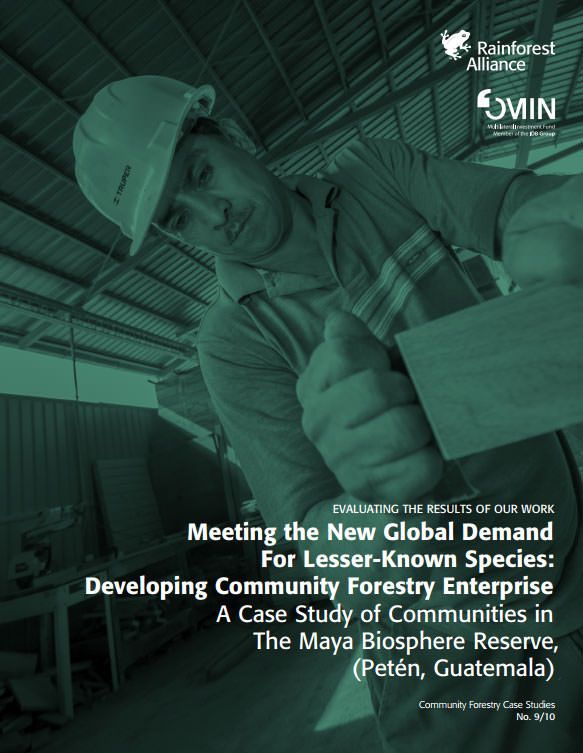Meeting the New Global Demand For Lesser-Known Species: Developing Community Forestry Enterprises in the Maya Biosphere Reserve
A Case Study of Communities in The Maya Biosphere Reserve, (Petén, Guatemala)
Expanding markets for lesser-known species (LKS) has long been identified as a key need to increase the competitiveness of community forest enterprise (CFE), especially in the tropics. A production focus on a single or small range of forest species with strong market demand places operations at risk for multiple reasons, from concerns about overharvesting, to enterprise exposure to shock if and when market dynamics change. While the need for diversification has been recognized for decades, only in recent years has there been significant expansion in demand for many LKS that previously had negligible market pull. In Europe, the United States, and China, a host of LKS now has robust demand, offering significant opportunities for CFEs to diversify their product offer.
Meeting this demand will not happen overnight, especially for small, locally-run forest enterprises. Even where LKS occur in CFE-managed forests and are part of current management plans and allowable cut volumes, the economic logic inherent in LKS value chains is distinct from more traditional timber markets. By and large, the markets for LKS are niche buyers and product lines. Penetrating these markets requires a high degree of enterprise capacity and competitiveness. Additionally, some value-added production needs to happen at the CFE level for engagement with such markets to be very profitable. Thus CFEs need to develop their businesses at multiple scales if they are to benefit from LKS markets.
The present case study chronicles work undertaken by the Rainforest Alliance under the MIF project to support CFEs in the Maya Biosphere Reserve, Guatemala, working with the second-tier business FORESCOM, to meet demand for LKS from a European buyer. The central finding of this case study is that LKS markets can significantly benefit CFEs, as long as there is adequate finance for investment and solid enterprise capacity supported by technical assistance. The role of FORESCOM, moreover, has been critical in stewarding the market linkage, leveraging its value-added capacity, and in working with its members to ensure that engagement with LKS markets is a winning proposition for CFEs.
